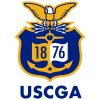Glenn S. Frysinger, Ph.D. M.S.
Professor, Chemistry
Marine and Environmental Sciences
Department of Chemical and Environmental Science

Frysinger is a Professor of Chemistry, specializing in analytical and physical chemistry disciplines. His research areas include the use of chromatographic separations to study the detailed chemical composition of petroleum and the application of that information to determine how oil degrades in the environment and to determine the source of oil spills in Coast Guard investigations. PROF Frysinger is well known for his advances in the field of comprehensive two-dimensional gas chromatography with mass spectrometry detection. Recent research has focused on the Coast Guard’s use of ion mobility spectrometry to identify trace drugs during searches.
Education
- Ph.D. Physical Chemistry, Rensselaer Polytechnic Institute, 1992
- M.S. Physical Chemistry, Rensselaer Polytechnic Institute, 1992
- B.S. Chemistry, Rensselaer Polytechnic Institute, 1987
Courses Taught
- Analytical Methods in Chemistry
- Fate & Transport of Chemicals in the Environment
- General Chemistry I and II
Selected Publications and Presentations
- Frysinger, Richard B. Gaines, Kliti Grice, Jonas Gros, Gregory J. Hall, Hector H.F. Koolen, Karin L. Lemkau, Amy M. McKenna, Christopher M. Reddy, Ryan P. Rodgers, Robert F. Swarthout, David L. Valentine, Helen W. White, Applications of Comprehensive Two-Dimensional Gas Chromatography (GC × GC) in Studying the Source, Transports, and Fate of Petroleum in the Environment, Chapter 8, in Standard Handbook Oil Spill Environmental Forensics, Second Edition: Fingerprinting and Source Identification. S.A. Stout, Z. Wang, Eds. Elsevier (2016) ISBN 0-12-80959-4.
- Gregory J. Hall, Glenn S. Frysinger, Christoph Aeppli, Catherine A. Carmichael, Jonas Gros, Karin L. Lemkau, Robert K. Nelson, Christopher M. Reddy, Oxygenated Weathering Products of Deepwater Horizon Oil Come from Surprising Precursors. Marine Pollution Bulletin Vol. 75 (2013) 140-149.
- Gregory T. Ventura, Gregory J. Hall, Robert K. Nelson , Glenn S. Frysinger , Bhavani Raghuraman , Andrew E. Pomerantz, Oliver C. Mullins, Christopher M. Reddy, Analysis of Petroleum Compositional Similarity using Multiway Principal Components Analysis (MPCA) with Comprehensive Two-Dimensional Gas Chromatographic Data. J. Chromatography A. Vol. 1218(18) (2011) 2584-2592.
- Gregory T.Ventura, Fabien Kenig, Christopher M. Reddy, J. Schieber, Glenn S. Frysinger, Robert K. Nelson, E Dinel, Richard B. Gaines, P Schaeffer, Molecular Evidence of Late Archean Archaea and the Presence of a Subsurface Hydrothermal Biosphere PNAS Vol. 104(36) (2007) 4260-14265.
- Emily E. Peacock, George R. Hampson, Robert K. Nelson, Li Xu, Glenn S. Frysinger, Richard B. Gaines, John W. Farrington, Bruce W. Tripp, Christopher M. Reddy, The 1974 Spill of the Bouchard 65 Barge: Petroleum Hydrocarbons Persist in Winsor Cove March Sediments. Marine Pollution Bulletin, Vol. 54(2) (2007) 214-225.
- Glenn S. Frysinger, Richard B. Gaines, Li Xu, Christopher M. Reddy, Resolving the Unresolved Complex Mixture in Petroleum Contaminated Sediments, Environmental Science &Technology, Vol. 37(8) (2003) 1653-1662.
- Christopher M. Reddy, Timothy I. Eglinton, Aubrey Hounshell, Helen K. White, Li Xu, Richard B. Gaines, Glenn S. Frysinger, The West Falmouth Oil Spill after Thirty Years: The Persistence of Petroleum Hydrocarbons in Marsh Sediments, Environmental Science &Technology, Vol. 36 (2002) 4754-4760.
- Richard B. Gaines, Glenn S. Frysinger, Martha S. Hendrick-Smith, James D. Stuart, Oil Spill Identification by Comprehensive Two-Dimensional Gas Chromatography (GC × GC), Environmental Science &Technology, Vol. 33 (1999) pp. 2106-2112.
- Glenn S. Frysinger, Richard B. Gaines, Comprehensive Two-Dimensional Gas Chromatography with Mass Spectrometric Detection (GC × GC/MS) Applied to the Analysis of Petroleum, J. High Resolution Chromatography, Vol. 22 (1999) pp. 251-255.
Honors
- U.S. Coast Guard Commander’s Award for Civilian Service, August 2016
- GC×GC Scientific Achievement Award. Awarded at the 11th GC×GC Symposium, Riva del Garda, Italy, May 2014
Professional Memberships
- American Chemical Society
